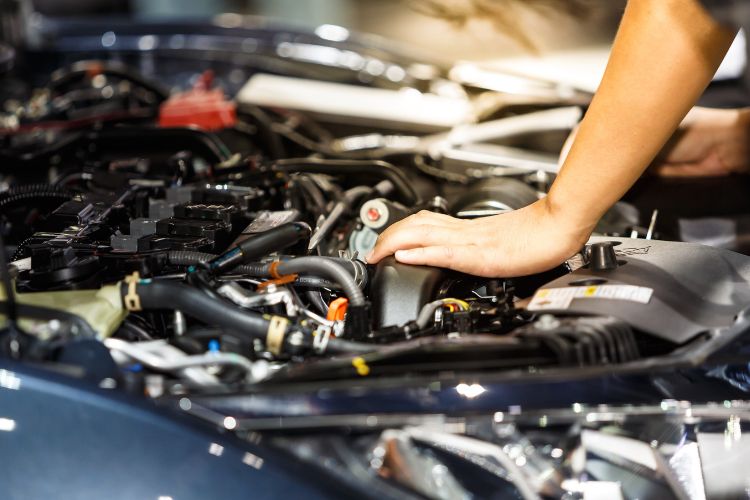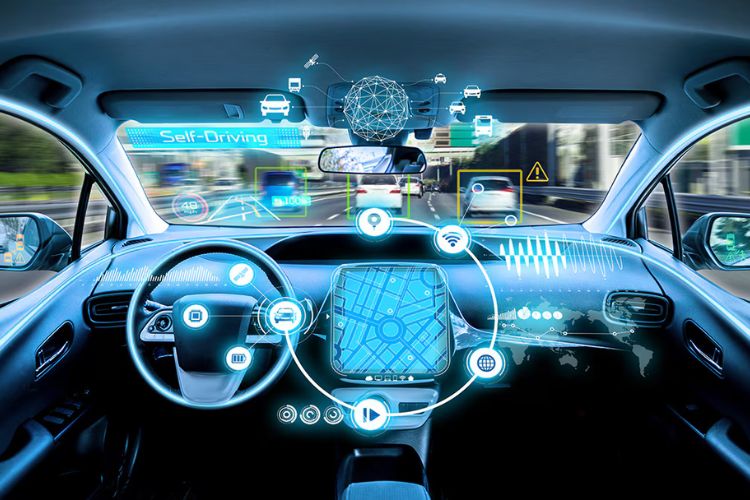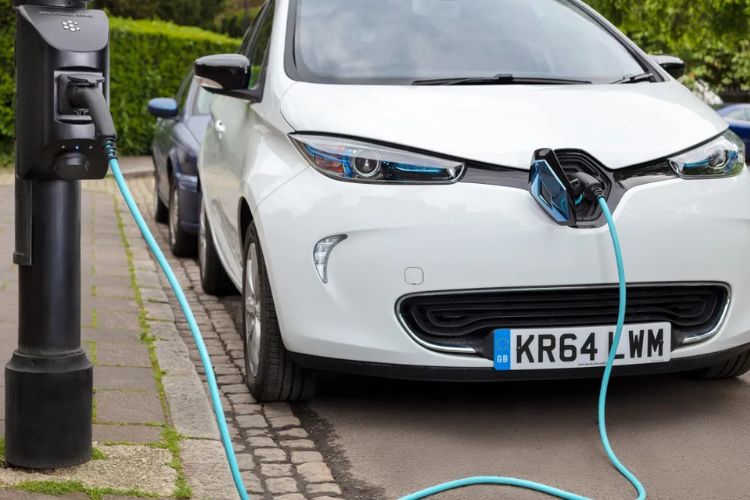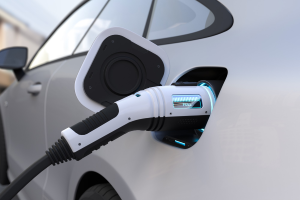As electric vehicles take over more driveways in the U.S., it’s easy to assume they’re maintenance-free. However, while EVs remove the need for oil changes, spark plug replacements, and muffler repairs, they still require regular upkeep. Understanding the basics of electric car maintenance helps owners maximise performance, range, and long-term value while avoiding unnecessary surprises.
First-time EV owners often wonder what the experience is like compared to driving a gas-powered car. The answer is impeller, but not effortless. From battery care and tire pressure to routine checks and brake service, maintenance on electric cars involves fewer moving parts. However, it’s still essential for ensuring a smooth ride and long-term reliability.
Table of Contents
ToggleStay Road-Ready: What Maintenance Does an Electric Car Need?

Electric vehicles are low-maintenance by nature, but they’re not maintenance-free.
Tire rotation, battery checks, brake fluid replacements, and cabin air filter replacements are among their offerings. Your ownership routine may also be impacted by the cost to charge electric car, which varies based on the type of station and local electricity rates.
While combustion engine cars require frequent oil changes and tune-ups, electric car maintenance focuses more on preserving battery health, monitoring software updates, and maintaining cooling systems. With fewer parts to fail, you’ll visit service stations less often, but regular checks are still vital.
Fully Charged: Everything An EV Owner Should Know
EV ownership comes with perks and responsibilities. Maximizing your electric driving experience while avoiding problems requires an understanding of the subtleties of maintenance, which includes.
1. Regular Brake Checks
Although regenerative braking reduces wear, regular maintenance on electric cars should still include checking brake pads, rotors, and fluid levels to ensure road safety. Brake system performance can impact your safety and the efficiency of the regenerative system over time.
Make sure to;
- Inspect brake pads: Check brake pads each year to ensure safe stopping power and prevent wear-related issues.
- Change brake fluid: Replace brake fluid biennially to maintain braking efficiency and prevent system corrosion.
2. Battery Health Affects Range
Batteries are the lifeblood of an EV. Keeping them within optimal charge levels extends life and performance. Poor charging habits and excessive temperatures can compromise your battery’s lifespan and range capacity. Charging smartly and being aware of how electric car maintenance helps deliver the best performance.
Make sure to;
- Battery health: Maintain battery health by charging within the optimal 20% to 80% range.
- Avoid fast charging: Limit fast charging to reduce battery wear and extend its lifespan.
3. Coolant System Inspections
Modern EVs use liquid cooling to regulate battery and power electronics. This makes electric vehicle servicing essential every 30,000 miles as recommended by your vehicle’s owner’s manual. The cooling system prevents overheating during high-performance driving or extended periods of use.
Make sure to;
- Inspect the coolant level: Check coolant levels often to prevent engine overheating and ensure proper cooling.
- Flush and replace coolant: Follow the manufacturer’s schedule to flush and replace coolant for optimal engine performance.
4. Tire Wear Happens Faster
EVs are heavier and deliver instant torque, which leads to quicker tire degradation. Follow an EV maintenance checklist to stay ahead of tire care. Tires are the only point of contact with the road, making their condition crucial for handling and range efficiency. Neglecting pressure checks can lead to uneven wear and even safety hazards.
Make sure to;
- Rotate tires: Regular tire rotation promotes even wear and extends tire life.
- Maintain recommended PSI: Keep tires inflated to the recommended pressure for safety, efficiency, and longevity.
5. Software Updates Matter

Frequent updates enhance the range, performance, and safety of an EV. Maintenance on electric cars includes staying current with firmware updates. These upgrades strengthen your EV energy efficiency, address bugs, and improve interface features. By avoiding these, you are missing out on the safety patches.
Make sure to;
- Enable automatic updates: Keep your system secure and up to date with the latest features by enabling automatic updates.
- Routine system diagnostics: Run regular diagnostics to detect and resolve issues before they impact performance.
6. Cabin Air Filter Needs Replacement
Filters get clogged with dust and pollutants over time. Replacing it with fresh filters improves air quality and system efficiency. Don’t forget to include replacing the cabin air filter in your EV maintenance checklist, as it will help prevent allergies, reduce unpleasant odors, and ensure better airflow through the HVAC system.
Make sure to;
- Replace filters: Change filters regularly to maintain clean airflow and optimal system efficiency.
- Keep vents clear: Ensure vents are unobstructed to support proper ventilation and prevent overheating.
7. Build an EV Support Checklist
Make a personalised EV maintenance checklist to ensure you never skip any part. It includes timelines and significant points for all essential services. This smart approach helps you to maintain a health vehicle, schedule timely inspections, and ensure compliance with warranty requirements.
Make sure to;
- Use a digital log or app: Easily track maintenance with a digital log or app for improved organization and accuracy.
- Set reminders for each service: Schedule alerts to never miss important vehicle maintenance tasks.
8. Don’t Ignore The Auxiliary Battery
In addition to the main drive battery, most EVs have a 12V battery to power lights and accessories, and forgetting this EV car maintenance step can cause unexpected failures. A dead auxiliary battery can leave you stranded, affect the locking system, or turn off remote start features.
Make sure to;
- Test battery voltage monthly: Check the battery voltage monthly to ensure reliable starting and prevent unexpected failures.
- Replace every 4-5 years: Replace your battery every 4-5 years to maintain optimal performance and prevent breakdowns.
9. Know Where to Charge
Whether at home or on the road, using a reliable EV charging station ensures safety and efficiency. Always look for high-quality, well-maintained stations; charging infrastructure is evolving, so staying informed helps avoid long waits. Knowing your charging options reduces range anxiety and improves overall convenience.
Make sure to;
- Check charger compatibility: Use chargers compatible with your device to ensure safe and efficient charging.
- Avoid charging to 100% daily: Limit daily charging to below 100% to prolong battery lifespan and maintain health.
10. Keep an Eye on Fluids

While EVs don’t need oil, they still use fluids for brakes, windshields, and cooling systems. Regularly checking these is part of proper electric vehicle servicing. Low or contaminated fluids can lead to impaired performance, overheating, or even damage to key components.
Make sure to;
- Check brake and washer fluids: Ensure optimal performance and safety by checking fluid levels every month.
- Inspect for leaks: Regularly check under the vehicle and engine bay for any signs of fluid leaks.
Keep the Spark Alive: The Hidden Benefits of EV Maintenance
Regular service ensures that your EV stays ready, safe, and efficient. It also helps extend the life of your most valuable component, such as the battery. Following a correct routine with EV car maintenance reduces the likelihood of unforeseen failures and improves your overall confidence when driving.
Benefits:
- Increased vehicle lifespan: Just as our bodies need regular check-ups, so do our vehicles, including EVs. Routine inspections can extend the overall lifespan of your car.
- Better Battery Performance: Your EV’s battery is its heart. Regular monitoring and temperature management ensure your battery runs at peak efficiency.
- Lower Repair Costs: Ignoring a minor issue today can lead to a bigger, more expensive one tomorrow,w especially for high-value components.
- Optimal Safety and Handling: EVs are known for their instant torque and smooth handling, but without proper alignment, that driving experience can decline.
- Higher Resale Value: Thinking long term? A well-maintained EV holds its value better. When it’s time to sell, a documented maintenance history helps find a buyer faster.
- Peace of Mind on the Road: If you’re using an EV daily or planning a long road trip, regular maintenance ensures you’re less likely to encounter unexpected issues.
Final Statement
Despite EVs having lower maintenance than gas-powered vehicles, they are not set-it-and-forget-it vehicles. From tire rotation and software updates to maintenance checks and fluid levels, understanding the electric vehicle servicing process will keep your vehicle running strong for years to come. If you are either a new EV owner or simply upgrading your EV, developing a smart maintenance routine is essential for effective and safe use.




